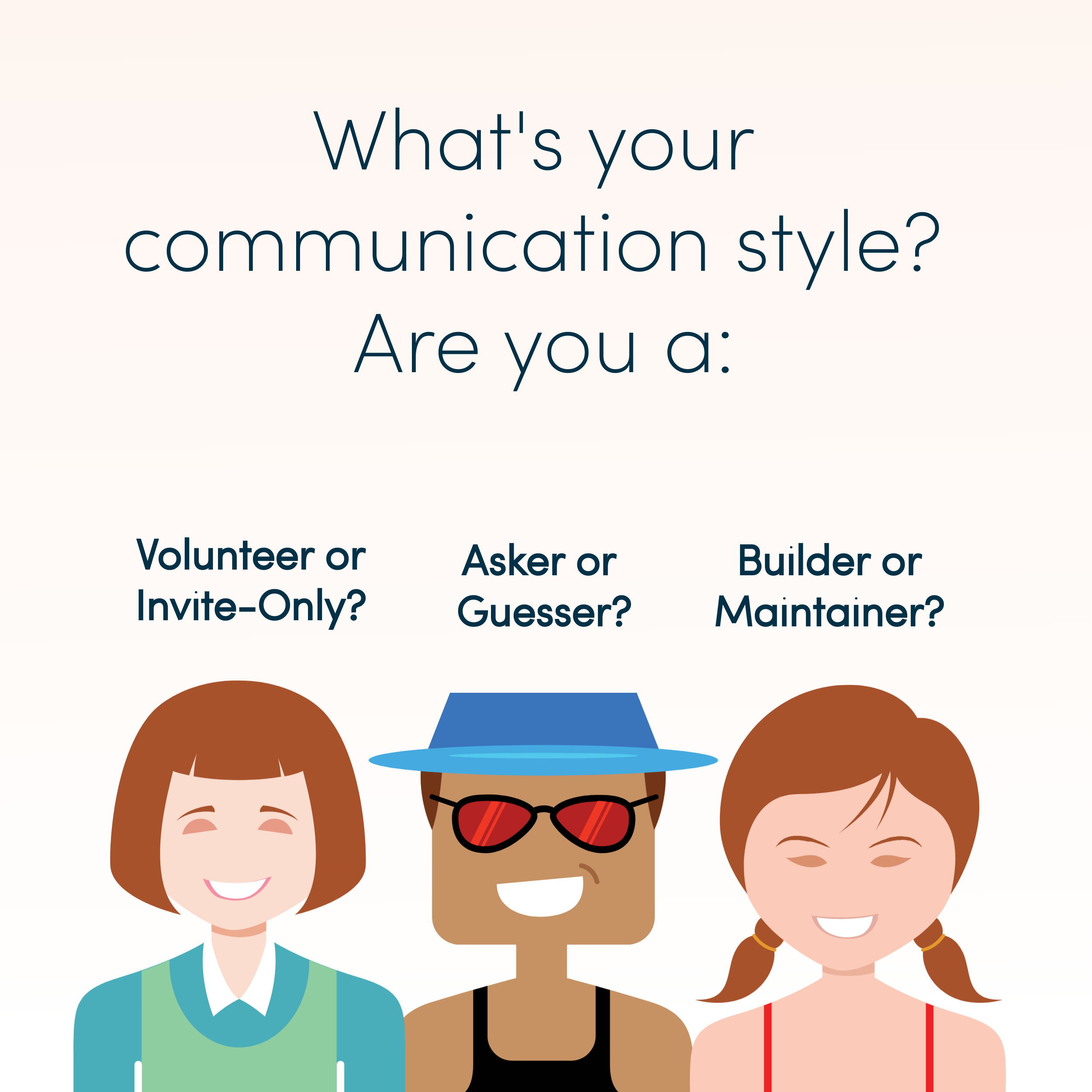
ON THE BLOG

These three communication differences will totally change the way you see your conversations with friends and family.
The three communication differences—Volunteer vs. Invite-Only, Asker vs. Guesser, and Builder vs. Maintainer—have helped millions of people understand how they and their loved ones communicate—and have helped heal hidden assumptions that had been hurting their relationships for years.
This article gives a complete deep dive into the three communication differences. We’ll break them down, explain the pros and cons of each, and, most importantly, offer a clear guide for how to communicate about them with friends and family who don’t share your style.





I people-pleased by giving consent for sex I didn’t want to have. (Newsweek)
Many recovering people-pleasers have a painful history of saying yes to sex when their bodies say no. It’s a common phenomenon: consensual sex, freely given—but unwanted. These experiences don't fit neatly into our culture's narrative of "perpetrator" and "victim,” but this doesn't make the subsequent trauma we may experience any less valid.

Here’s how to stop people-pleasing in your romantic relationships.
Have you been involved in numerous one-sided relationships that are all give and no take? Do you have difficulty knowing and naming your own feelings and needs—especially when they’re different from your partner’s? Do you experience immense difficulty saying no, setting boundaries, and setting limits with your partner? Do you find yourself repeatedly losing your sense of identity in your romantic relationships? Here’s how to break the pattern.



How I stopped trying to control my partner and took responsibility for my own happiness.
Have you been attempting to control your partner without realizing it? You might be surprised to learn how often your own attempts to "help," "fix," or "heal" others are manipulation in disguise. Here are six concrete strategies you can use to notice — and break — these controlling patterns.

Get my book, STOP People Pleasing and Find Your Power
A step-by-step guide to speaking up, setting empowered boundaries, and becoming your own best advocate.
